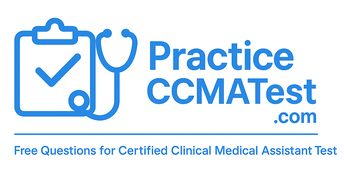Practice CCMA Test 2 has 40 questions and goes deeper into your knowledge than the questions in the first section. The emphasis continues to be on concepts and details, but to a greater extent than in the preliminary section. Although it will not be heavy on scenarios, it has the potential to prompt you to think a little more directly and apply your learning with greater precision.
40 Questions
By working through Practice CCMA Test 2, you have continued to develop a foundation and received helpful feedback on areas for improvement. Please use this feedback as you proceed with Practice CCMA Test 3, where scenario-based questions will take the leading role.
Next: CCMA Practice Test 3FAQs
- What does Practice CCMA Test 2 focus on?
It focuses on detailed knowledge of concepts beyond the basics covered in Test 1.
- Is this a free NHA CCMA practice test for students?
Yes, Practice Test 2 is completely free and open for all CCMA exam candidates.
- Does this test provide correct answers after each question?
Yes, each question includes the correct choice along with an explanation for deeper understanding.
- What is the minimum passing score for Test 2?
You need at least 32/40 correct (80%) to pass.
- Is Practice Test 2 recommended for CCMA certification preparation?
Absolutely, it helps strengthen your skills and brings you closer to being exam-ready.
Latest posts by Lucas Bennett (see all)
- Clinical vs Administrative Medical Assistant Work: What’s the Difference? - February 28, 2026
- The Smart Way to Choose a Medical Assisting Path - February 28, 2026
- Effective Note-Taking Strategies for CCMA Students - February 27, 2026
